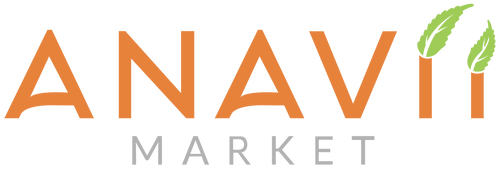Four Federal agencies and one state banking agency issued a joint statement on Tuesday allowing hemp businesses access to the financial system without the additional scrutiny that was required previously before hemp was removed from the Controlled Substances list.

The joint press release titled “Providing Financial Services to Customers Engaged in Hemp-Related Businesses” clarifies the legal status of hemp and provides banks with information and guidance necessary to offer banking services to the hemp industry. The statement informs financial institutions on the legal status of hemp, including the USDA’s interim final rule on hemp, and the Bank Secrecy Act (BSA) considerations for providing banking services to hemp businesses.
The joint statement was released by the below agencies:
- Board of Governors of the Federal Reserve System
- Federal Deposit Insurance Corporation (FDIC)
- Financial Crimes Enforcement Network
- Office of the Comptroller of the Currency
- Conference of State Bank Supervisors




The joint statement gives hemp businesses access to financial services and tools that were previously unavailable. The lack of access to the financial system has been possibly the biggest challenge facing hemp farmers and industry participants.
Previous Banking Regulation
Previously hemp businesses were subject to high scrutiny due to the illegal status of hemp. Prior to this newly released joint statement, Federal regulation and examination procedure provided little to no guidance regarding the requirements for hemp related businesses. The majority of hemp businesses under the Industrial Hemp Pilot Program that preceded the 2018 Farm Bill had been limited to a small number of local banks. These banks almost always required a letter from a State Department of Financial Institution (DFI) regarding their position on state-chartered depository institutions obligations under the Bank Secrecy Act (BSA) and Anti Money Laundering Law (AML).
Businesses often had their accounts frozen until they were able to provide this letter, a copy of state and federal regulation, and a copy of their hemp license. The banks would then wait until they heard back from FDIC regulators before deciding to unfreeze the hemp account. These accounts were subject to increased scrutiny, and federal regulators were often entirely unsure how to examine hemp accounts due to a lack of any written regulation from their respective agencies.
How Limited Banking Access Affected Industry
The lack of lending services for hemp businesses has been problematic for the hemp industry. Without conventional lending tools hemp businesses have been forced to operate entirely on cash, suffer cash-flow problems, and/or obtain loans through other means. Processors are a crucial part of the supply chain as they provide the market to farmers to sell their crop, and without access to ordinary banking services they have often struggled to operate and honor obligations to farmers.
The inherent risk of a new agricultural industry coupled with a lack of access to ordinary banking and lending services has proved challenging. The joint statement eliminates this fundamental banking and lending problem by providing hemp businesses the financial services needed to grow their businesses in this rapidly moving industry. This joint statement marks a new period of economic growth and stability for hemp farmers. We will start to see a more legitimate market form where farmers and industry participants alike can operate their hemp businesses like any other legal business.
Banking Access Going Forward
The 2018 Farm Bill was the piece of federal legislation that allowed for federal entities to form regulatory rules necessary for hemp businesses to enter the same league of legal free-trade as other businesses without being limited by its once prohibited legal status. The joint statement issued by the four federal institutions and conference of State Bank supervisors allows hemp businesses to apply for loans and open accounts with all major financial institutions without the institution having to file Suspicious Activity Reports (SARs) due to hemp’s connection to the Schedule I drug Marijuana. Banks still have to abide by banking rules and regulations of course, but they no longer face additional scrutiny that has hindered industry growth. This is a monumental win for the hemp industry and banks.
The joint statement by these agencies is yet another step forward in hemp’s journey from a once prohibited substance to a legal commodity in the national and global market. While the hemp industry still faces many legal hurdles, this statement, one year after the 2018 Farm Bill, shows that Federal agencies are fast tracking the process of adding hemp to their regulatory frameworks and language.









